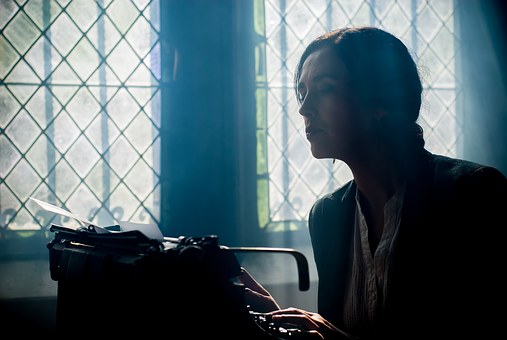He had married an author. A poetess and author. A master of the English language. He did very little now, I think. He oversaw the cleanliness of their Paris apartment. He made lunches for the children though they had a housekeeper who would have gladly made sandwiches with jambon et beurre. It was his part. His little part of being a father and husband to a successful writer. He still penned poetry. Sometimes, I would see his poetry in various journals. I got the sense he was holding back. He was afraid of being sad or graphic. Can’t offend the wife and kids.
He sent me an email. Coming to New York. I was working with the Village Voice and penning poems. I was working on a novel. For three years, I was working on a novel. I was still unmarried. Sans boyfriend. No children. My office desk was a mess and I had a cluster of stickies on the wall by my desk. My boss, a gay man with black painted fingernails, always frowned at me. Even when I wrote a popular article he frowned.
“You’re a mess, Ashley.” He would wave me off.
I was a mess. There was a constant jumble of words in my head. Sentences formed and reformed. And then there was him. The man I could not forget. The lover in college that pledged his life to me on one drunken night during Spring Festival. I never forgot. Even when he gravitated to her. And dumped me for her.
Horrible. Lunch with him. I chose Mediterranean. I ordered the Gyros platter. He ordered the roast chicken.
“Dolma to start?” he asked. I nodded. I wanted to gut him. He talked about her. Her awards. The accolades. He spoke of his children.
He was aged but I could still see that flippish boyish look. The full hair matted to his skull when we swam in the lake in New Hampshire. I knew he would leave me. I knew it as I dried myself on the rock. I looked up and sparrows took to the sky. We were near Robert Frost’s farmhouse. The meadow was quiet except for the occasional scurrying of rabbits and foxes. An image came to me. I was alone and would never be a writer. I would sit in my book crushed living room and fiddle with words. I knew this because he didn’t love me. He didn’t love my words. He criticized my poetry and told me he had rejected my short story from the literary journal. He chose hers instead.
Being successful demands at least one fan early on. I stood up in the restaurant and knocked over a glass of red wine. It drowned my gyros.
“I loved you,” I said. “You never loved me. Or more words. And now I will go on with things. Don’t show up if I die.”
Melodramatic. Yes. But I felt it. Tears obscured my face as I left the restaurant. Is that the difference between a successful writer and an unsuccessful one? Someone loved them and their words early and another criticized? I don’t know but I knew I wouldn’t finish my novel.
THE END
